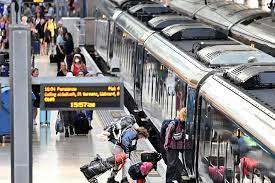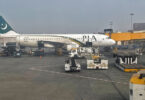LONDON (Reuters): Regulated rail fares in England will rise by up to 4.9% in March, less than the Retail Prices Index (RPI) measure of inflation which was 9% in July and would normally be used for the increase, Britain’s government said on Friday.
The transport ministry said the lower increase struck the “right balance to keep our railways running and financially sustainable while not overburdening passengers with excessive fare rises as we bear down on inflation.”
Prime Minister Rishi Sunak, who is expected to call an election next year, has promised to bring down inflation.
Transport minister Mark Harper said changes to working patterns after the coronavirus pandemic meant Britain’s railways were still losing money and required subsidies.
“Having met our target of halving inflation across the economy, this is a significant intervention by the government to cap the increase in rail fares below last year’s rise,” he said.
Britain’s Consumer Prices Index inflation fell in November to 3.9%, its slowest rate in over two years with transport – particularly fuel prices – a significant downward contributor.
The typically higher RPI measure of inflation remains widely used to calculate interest payments on index-linked bonds and student loans, as well as annual increases in some pensions and other commercial contracts as well as rail fares.







